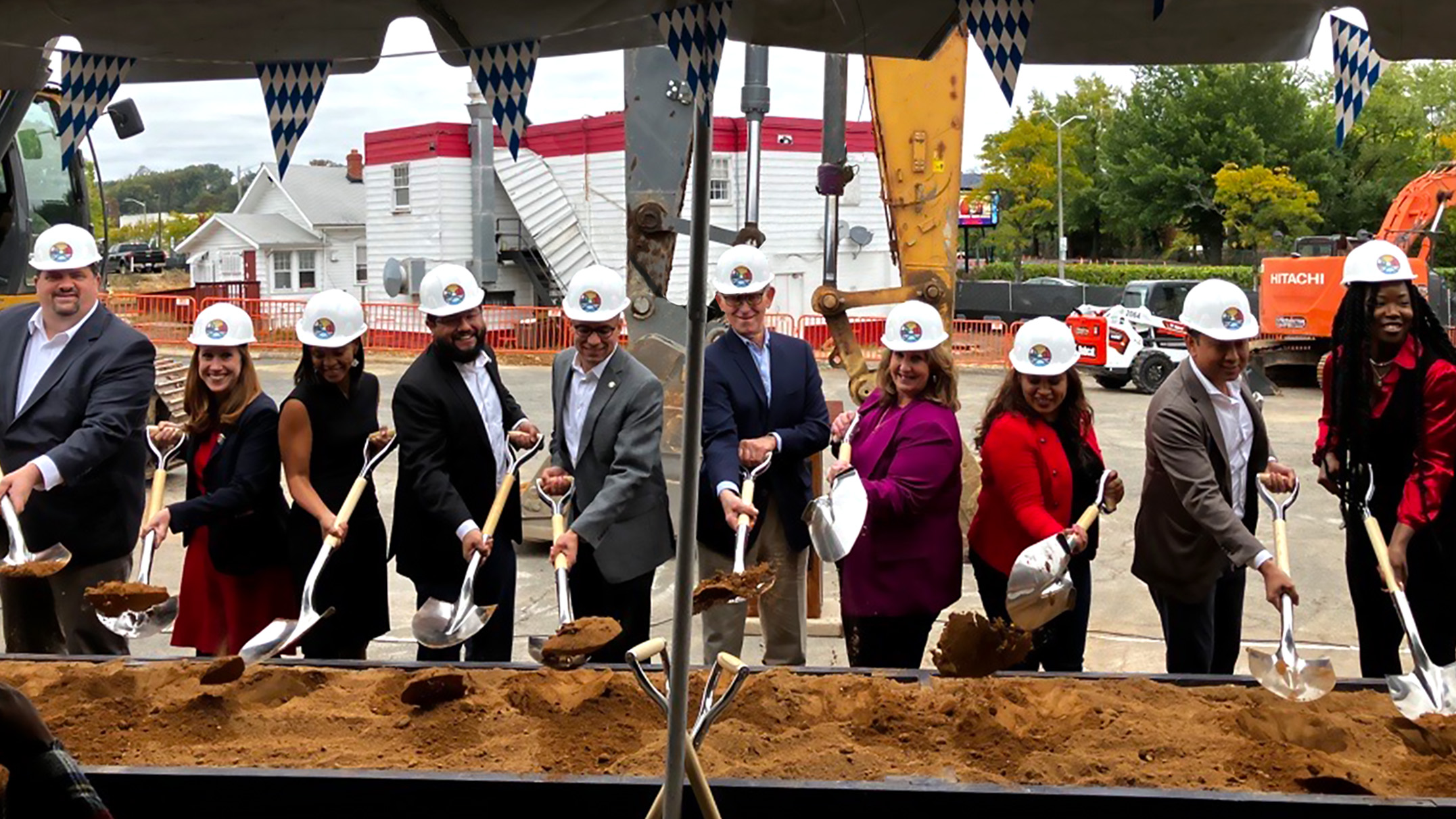How Zuckerberg's Meta Will Respond To A Trump Presidency

Table of Contents
Content Moderation Challenges Under a Trump Presidency
A Trump administration might significantly alter the landscape of content moderation on Meta. The potential easing of restrictions on political speech is a primary concern.
- Increased Misinformation and Harmful Content: A less stringent approach could lead to a surge in misinformation, hate speech, and other harmful content, demanding more robust fact-checking and content removal mechanisms from Meta. This would require substantial investment in AI-powered moderation tools and human review teams.
- Balancing Free Speech and Safety: Meta faces the immense challenge of balancing the principle of free speech with the vital need to prevent the spread of disinformation and hate speech that could incite violence or discrimination. This delicate balance is likely to become even more precarious under a Trump presidency.
- Legal and Political Pressure: Expect increased legal challenges and political pressure on Meta's content moderation decisions. A Trump administration might be less tolerant of decisions perceived as biased or infringing on conservative viewpoints, leading to further scrutiny and potential regulatory changes.
- Historical Responses and Future Strategies: Meta's past responses to controversies involving political speech provide clues to its future strategies. We can anticipate a renewed emphasis on transparency, improved algorithms for identifying harmful content, and potentially greater reliance on third-party fact-checkers. The role of algorithms and AI in content moderation will be crucial in navigating this complex environment.
The Impact on Political Advertising on Meta
Political advertising on Meta is another area poised for significant change under a Trump presidency.
- Increased Scrutiny of Political Ads: Expect increased scrutiny of political ad targeting practices and spending. This scrutiny could involve investigations into the use of microtargeting and the potential for manipulation of voters.
- Transparency Requirements: Transparency requirements for political advertising on Meta might become stricter, forcing greater disclosure of who is funding the ads and their intended audience.
- Preventing Misinformation: Meta's responsibility in preventing the spread of misinformation through political ads will be paramount. This could involve stricter verification processes and potentially even bans on certain types of political advertising deemed misleading or deceptive.
- Increased Spending: A Trump presidency might lead to increased spending on political advertising on Meta, as both the Trump campaign and opposing forces compete for online attention. This increased spending will necessitate more sophisticated monitoring and regulation by Meta.
- Past Controversies: Past controversies surrounding political ads on Meta, including the Cambridge Analytica scandal, will inform future policies and practices. Meta will need to demonstrate a commitment to preventing similar issues from recurring.
User Safety and Security Concerns on Meta
A Trump presidency could exacerbate existing user safety and security concerns on Meta.
- Rise in Hate Speech and Harassment: A more divisive political climate could lead to a rise in hate speech and harassment targeting specific groups. Meta will need to enhance its tools and processes for identifying and addressing such content.
- Disinformation and Manipulation: The platform may become a more fertile ground for disinformation and manipulation campaigns, necessitating improved safeguards against coordinated efforts to spread false information or influence public opinion.
- Enhanced Security Measures: Pressure on Meta to enhance its security measures and user protection policies will undoubtedly increase. This includes strengthening data protection measures and improving systems for detecting and responding to cyberattacks.
- User Trust and Engagement: The overall impact on user trust and engagement is a critical concern. If users feel unsafe or believe the platform is not effectively addressing harmful content, it could lead to a decline in user activity. Meta's existing safety measures and their effectiveness will be rigorously tested.
Meta's Strategic Response and Public Relations
Meta's strategic response to a Trump presidency will be multifaceted, requiring proactive measures and a carefully crafted public relations strategy.
- Proactive Measures: Meta should proactively address potential challenges related to content moderation, political advertising, and user safety. This includes investing in technology, refining policies, and strengthening partnerships with fact-checking organizations and civil society groups.
- Public Relations Strategy: A robust PR strategy is crucial to manage Meta's image and reputation during a potentially contentious political climate. This includes transparent communication about its policies and actions, proactive engagement with critics, and a clear commitment to addressing concerns.
- Collaborations: Collaborations with other tech companies and civil society organizations could prove beneficial in sharing best practices and developing more effective approaches to content moderation and user safety.
- Past Performance: Analyzing Meta's past public relations successes and failures will inform its strategy. Transparency and consistent communication will be key to building and maintaining trust.
The Future of Zuckerberg's Meta Under a Trump Presidency – A Call to Action
Zuckerberg's Meta faces significant challenges under a potential Trump presidency, ranging from content moderation complexities to navigating the shifting landscape of political advertising and user safety. The responsibility for fostering a safe and informative online environment rests heavily on Meta's shoulders. The implications of a Trump presidency for Meta are far-reaching and will undoubtedly impact its business and reputation. We need to stay informed about Meta's policies and actions regarding a Trump presidency and engage in thoughtful discussions about the role of social media in democratic processes. The future of Zuckerberg's Meta's response to a Trump presidency hinges on proactive measures, transparent communication, and a unwavering commitment to user safety and the integrity of the platform.

Featured Posts
-
 Unheard Rock Collaboration Lizzo Sza And A Third Artist
May 04, 2025
Unheard Rock Collaboration Lizzo Sza And A Third Artist
May 04, 2025 -
 Charles Barkleys Nhl Playoff Predictions Oilers And Leafs Highlighted
May 04, 2025
Charles Barkleys Nhl Playoff Predictions Oilers And Leafs Highlighted
May 04, 2025 -
 Targeting 2027 Jet Zeros Revolutionary Triangle Jet Design
May 04, 2025
Targeting 2027 Jet Zeros Revolutionary Triangle Jet Design
May 04, 2025 -
 Gold Faces Headwinds Understanding The Double Week Price Drop In 2025
May 04, 2025
Gold Faces Headwinds Understanding The Double Week Price Drop In 2025
May 04, 2025 -
 Strathdearn Community Project Reaches Milestone Affordable Housing Groundbreaking
May 04, 2025
Strathdearn Community Project Reaches Milestone Affordable Housing Groundbreaking
May 04, 2025
Latest Posts
-
 Analyzing The Alleged Rivalry A Timeline Of Blake Lively And Anna Kendricks Interactions
May 04, 2025
Analyzing The Alleged Rivalry A Timeline Of Blake Lively And Anna Kendricks Interactions
May 04, 2025 -
 A Comprehensive Timeline Of The Reported Feud Between Blake Lively And Anna Kendrick
May 04, 2025
A Comprehensive Timeline Of The Reported Feud Between Blake Lively And Anna Kendrick
May 04, 2025 -
 Blake Lively Vs Anna Kendrick Tracing The Timeline Of Their Alleged Feud
May 04, 2025
Blake Lively Vs Anna Kendrick Tracing The Timeline Of Their Alleged Feud
May 04, 2025 -
 Unmasking The Truth A Timeline Of The Blake Lively Anna Kendrick Conflict
May 04, 2025
Unmasking The Truth A Timeline Of The Blake Lively Anna Kendrick Conflict
May 04, 2025 -
 Comparing Styles Blake Lively And Anna Kendricks Understated Red Carpet Looks
May 04, 2025
Comparing Styles Blake Lively And Anna Kendricks Understated Red Carpet Looks
May 04, 2025
